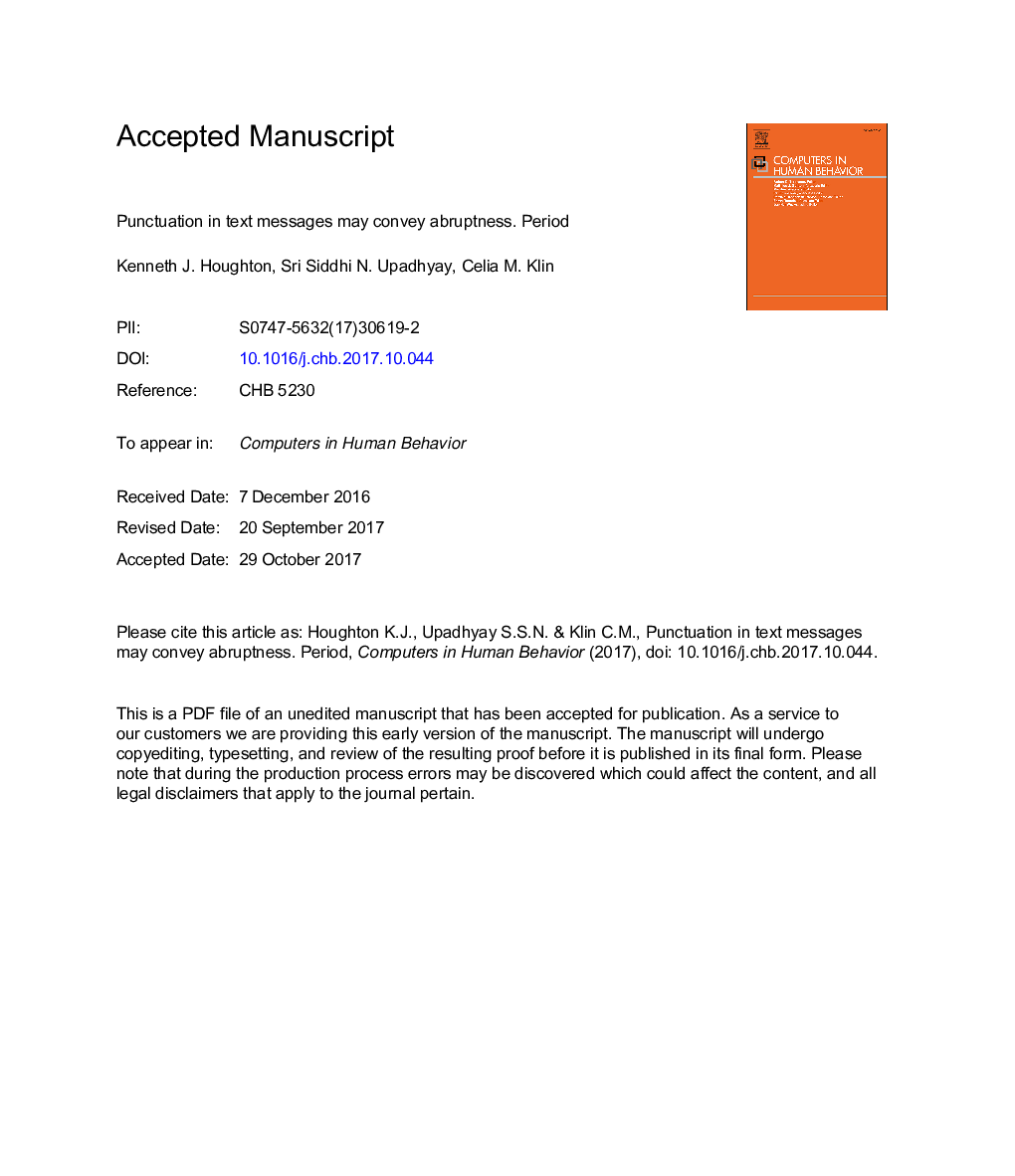| Article ID | Journal | Published Year | Pages | File Type |
|---|---|---|---|---|
| 6836208 | Computers in Human Behavior | 2018 | 32 Pages |
Abstract
In contrast with face-to-face conversations, text messages lack extra-linguistic cues such as tone of voice and gestures. We explore the hypothesis that textisms, such as irregular punctuation, are used to fill this role. We extend the work of Gunraj, Drumm-Hewitt, Dashow, Upadhyay, and Klin (2016) who found that the inclusion of a period after a positive one-word response (e.g., yeah.) led readers to perceive the response as less sincere. In Experiment 1, we used longer text exchanges that were more naturalistic and replicated this finding. In Experiments 2 and 3, negative responses (e.g., nope) and ambiguous responses (e.g., maybe) were also perceived as more negative, or less enthusiastic, with a period. The period can serve a rhetorical, rather than a grammatical, function in text messages. More generally, textisms such as punctuation can convey the types of social and pragmatic information that are communicated with extra-linguistic cues in face-to-face conversations.
Keywords
Related Topics
Physical Sciences and Engineering
Computer Science
Computer Science Applications
Authors
Kenneth J. Houghton, Sri Siddhi N. Upadhyay, Celia M. Klin,
